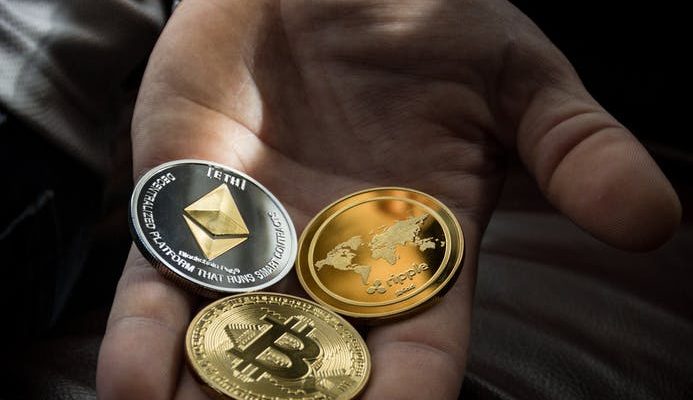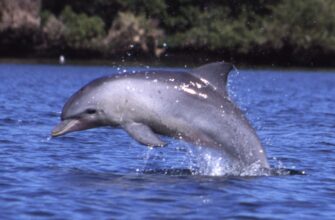Oceans cover more than 70% of the Earth’s surface but remain out of sight. Most people probably have no idea what lies beneath the water where you live or swim. You may not realize it, but this undiscovered mass accounts for over two-thirds of our planet and plays several crucial roles in regulating global climate and sustaining life on planet Earth.
97% of all water on earth is saltwater contained in oceans, seas, and other saltwater bodies such as saline lakes. The remaining 3% is freshwater found in rivers and lakes. These bodies are important to us because they are a source of food, energy, and transportation.
We rely on them so heavily that some experts estimate that 90% of all international trade occurs through maritime shipping lanes. We may not understand the complexities hidden below surface level, but this does not mean that these resources are less valuable than their terrestrial counterparts! To learn more about what makes these vital ecosystems visit your local library today!
Table of Contents
Many Threats and Challenges Surround Our Oceans
Our oceans continuously face significant threats and challenges like overfishing, poaching, illegal wildlife trade, marine pollution, and theft. Blockchain technology can help address these problems by creating transparent chains of custody for seafood that would make it harder to launder fish caught illegally or in a way that harms fragile ecosystems.
For example, a fisherman who catches a swordfish could upload various data about that fish to the blockchain ledger. The ledger would then track that particular swordfish as it makes its way from the fishing boat to your local supermarket, where you purchase and eat it for dinner. If that fish is caught legally and sustainably (e.g., not with dolphin-killing nets), then the entire supply chain is clean. However, if it is caught illegally or unethically (e.g., by poachers or with dolphin-killing nets), then the blockchain record will reflect this at each step of its journey from sea to plate. Consumers can then use this information when they make their purchasing decisions. For instance, they might choose not to buy swordfish if they know it was killed illegally or inhumanely.
Dolphins an Important Part of Ocean Ecosystem
You may be familiar with dolphins as one of the most intelligent animals in the ocean. They are sea mammals, meaning they breathe using a blowhole on their head, and they give birth to live young instead of laying eggs. Dolphins have a variety of species and many are friendly to humans. There are even tourist shows where dolphins perform tricks for crowds of people.
However, despite their popularity and intelligence, dolphin populations worldwide is declining rapidly for decades. It is due to factors like pollution, overfishing (dolphins sometimes mistake debris for food), getting trapped in fishing nets, or being accidentally caught on fishing hooks. If this continues at its current rate, dolphins will become extinct within our lifetimes! Blockchain technology can help track the illegal killing of Dolphins and can indirectly help in their sustenance.
Blockchain Projects that Support Marine Conservation
Many organizations are already utilizing blockchain technology to tackle problems in the marine ecosystem. Oceanconservancy.org has developed a platform that tracks marine litter data from millions of volunteers in more than 180 countries. Using blockchain to store this data, concerned authorities can make real-time solutions based on accurate information.
The Ocean Cleanup is another organization using blockchain to fund cleanup operations. The organization uses satellite data, aerial surveys, and ocean modeling to determine the most effective way for their vessels to collect litter floating in the ocean.
These results are then placed on a public blockchain ledger, revealing how much oil or plastics were collected by each vessel during a given period. The general public can then use this information when donating funds to the organization via a cryptocurrency called Clean Tokens. This blockchain technology makes donors confident that they are funding an effective solution and not just throwing money at an issue without knowing its impact or efficacy.
Another example of an organization using blockchain technology is World Wildlife Fund (WWF). WWF uses Ethereum’s permissioned Quorum Blockchain platform as an immutable tracking mechanism for fish caught in the ocean by Chinese fishing boats working with WWF partner brands such as Red Lobster, Walmart, and Tesco. By identifying each fish caught by these fishing boats, customers get assurance that their seafood was legally sourced through a transparent supply chain process that ensures wildlife conservationists know where it came from and how it was handled from start to finish.
One final example of an initiative leveraging blockchain technology is Wave’s sustainable seafood supply chain project which uses both GPS tracking devices and QR codes for end-to-end traceability of all seafood sold on their platform. As one of ICO Alert’s top 10 ICOS listed in 2018, this project has received rave reviews and shows promise as one of many solutions needed around the world for crucial issues such as food safety concerns along with overfishing globally
Donations Through Cryptocurrencies to Strengthen Ocean Ecosystem
You can donate using cryptocurrencies to strengthen the marine ecosystem. Some ocean-lovers have started donating to reviving the marine ecosystem, and you too can do the same. If you are wondering how your contribution through crypto could help strengthen the marine ecosystem, then check out these organizations that allow crypto donations:
- Fund Ocean
- Plastic Bank
- AliceX
If you want to donate cryptos to help our marine ecosystem, you must first have a digital wallet and add some cryptos to it. Being new to cryptocurrency trading, you can start with newer and smaller cryptos like Solana. But before you get into this, get to know the crypto by asking why should I buy SOL, what is SOL, and how to buy SOL.
Blockchain Technology for Tracking the Movements of Fishing Vessels, Fish, Corals, and Other Marine Wildlife
Movements of fishing vessels can be tracked with the help of satellite tracking systems, which will help enforce limits on the number of fish that can be transported.
Fish, corals, and other marine wildlife can also be tracked using RFID chips or RFID tags. With this technology, a database containing information about these items will be available for all people involved in the transaction.
Blockchain technology can help identify illegal activities in real-time, which will make it easier for enforcement agencies to take appropriate actions. It will ensure that only sustainable fishing practices are followed, and no poachers escape detection.
Using Smart Blockchain Contracts to Track Poachers
Using smart contracts on the blockchain, it can be made sure that only sustainable fishing is allowed, and poachers will have no way to escape with their catch.
A smart contract on a blockchain would provide all the necessary information about the fish species, stock, time of fishing, and other crucial details. For instance, a fisherman in South Africa may only fish at certain times of the year for certain species to avoid over-fishing.
If a fisherman plans to go out and fish, he needs to first enter his details into an app connected through a blockchain network. All these details are stored in the block, which contains a hash code of previous blocks. Each block is linked to each other and stored in chronological order, which makes it impossible for anyone to alter or tamper with these records in any way.
If any information found is incorrect or illogical in terms of times/dates/species etc., the proof of ownership check will fail, and hence, you will not get permission by this system to even start fishing. So, you cannot escape using loopholes because every deal will be automatically checked against agreed-upon rules before getting executed.
Blockchain Technology can be a Blessing in Making Our Oceans Clean Again
Blockchain technology has immense potential to affect every sector of our lives, and the same goes for marine ecosystems. Even though blockchain entered the mainstream just about a decade ago, it is still getting adopted by many different industries. Experts are working on ways to apply this cutting-edge technology to myriad fields to bring about meaningful innovations.
Blockchain technology helps to monitor the activities happening inside the marine ecosystem with far more precision than ever before. The data is secured to a greater extent because blockchain technology makes it impossible for hackers to alter or tamper with information written on a blockchain. With such precision and security, we can make sure that our oceans remain clean again.









